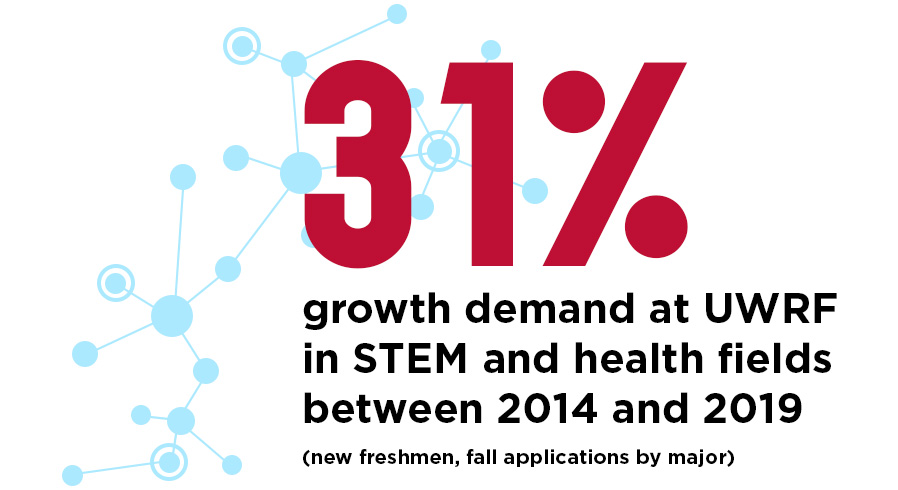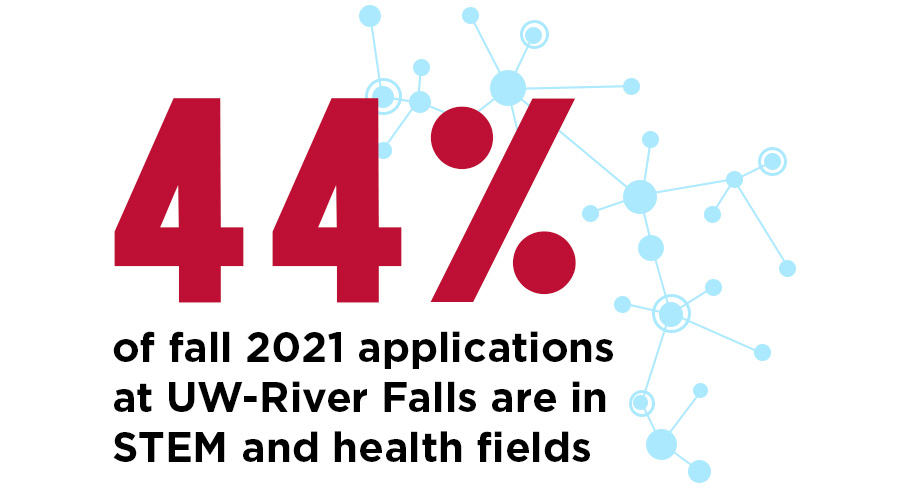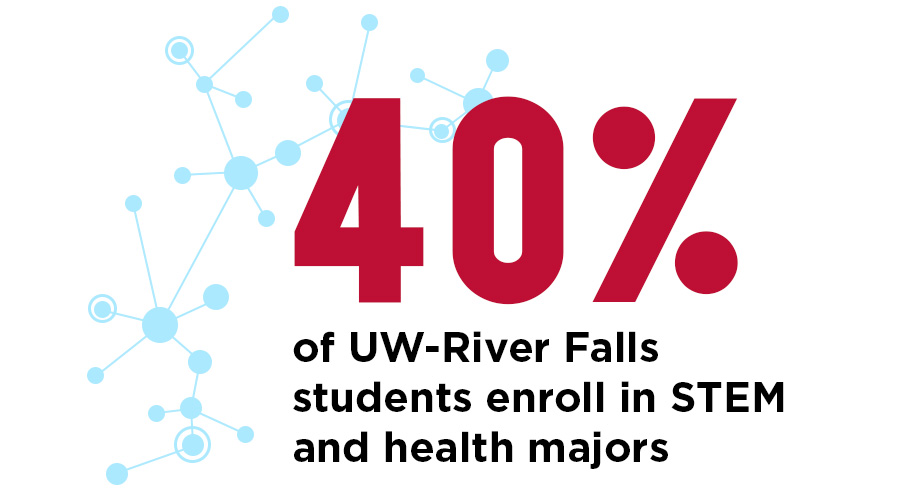

SciTech Research Impacts
University Advancement Staff
Phone: 715-425-3505
Email: advancement@uwrf.edu
Location: 112 South Hall
Changing the World
SciTech is designed to change our world. The building will be home to innovative research neighborhoods around biology, chemistry, physics and psychological sciences. The state-of-the-art facility will attract top researchers and accelerate interdisciplinary collaboration and partnerships with scientific and research-related industries.
Thanks to the multidisciplinary nature of SciTech, all UWRF students will utilize the building. It won't just be a place of learning and exploration but a place of community and collaboration.

The Future of Research
While SciTech is the future home of many of UWRF's research efforts, faculty and students are currently partaking in exciting research projects. These efforts - and future research endeavors - will be further supported by SciTech's facilities, taking UWRF's commitment to hands-on research to the next level.
Explore below to learn about some of the fascinating research our Chemistry and Biotechnology department is taking on.
Quantum dots are useful in technological applications that gather or emit light, such as solar cells or LEDs. The Alvarado research group is studying ways to make quantum dots that contain fewer heavy metals and are less toxic. They will be studying the quantum dots that we produce using a new scanning electron microscope, which is being purchased via a grant funded by the National Science Foundation.


The Stroffregen research group uses quantum chemistry and statistical rate theory to construct atmospheric reaction mechanisms that allow for the prediction of how temperature variations affect the outcome of the atmospheric oxidation reactions. Their work makes use of a supercomputing cluster funded by the National Science Foundation to conduct the computations.
Chromatography is the primary tool for detecting minute quantities of chemicals in complex mixtures. The power of chromatography is that it first separates mixtures into their individual components and then secondly, measures the amount of component present. Chromatography is employed in diverse fields such as the food, agricultural and pharmaceutical sectors. Recent work in UWRF's laboratory has addressed issues relating to the suspect quality of over-the-counter supplements.

SciTech isn’t about a building. It’s about providing immersive high-impact learning experiences and building limitless productive and collaborative opportunities for students, faculty and the regional business community.
